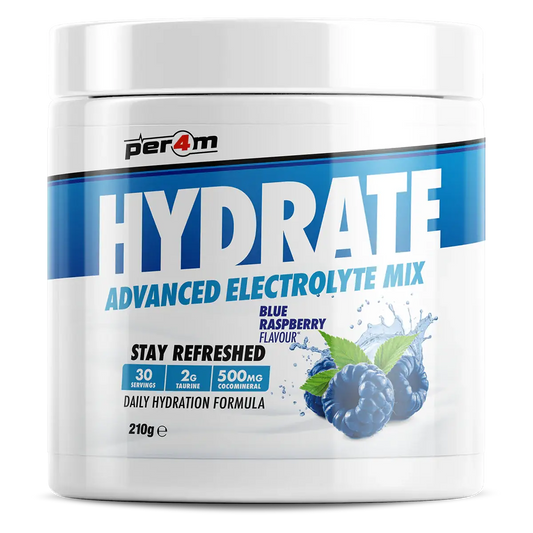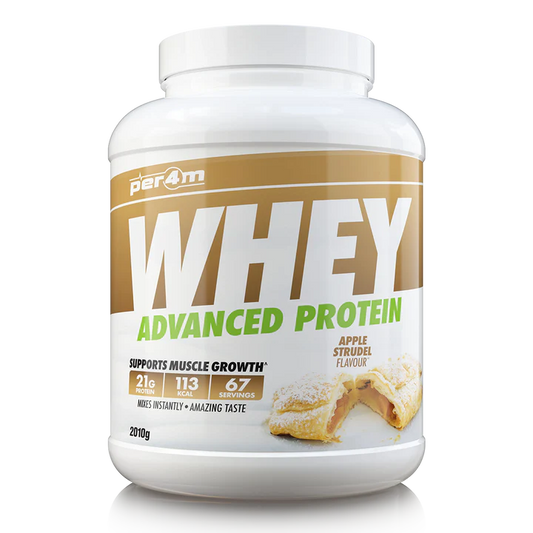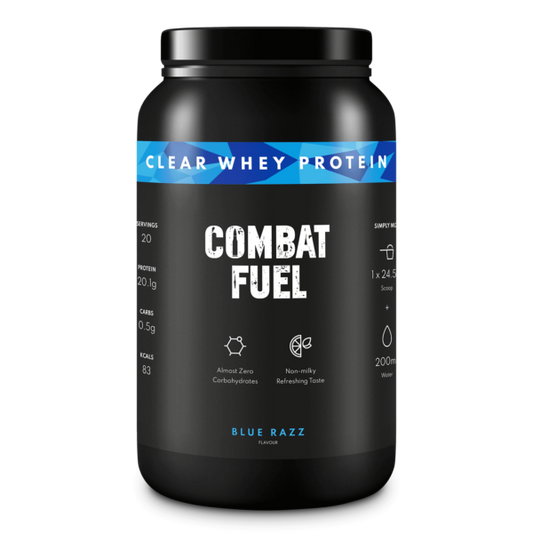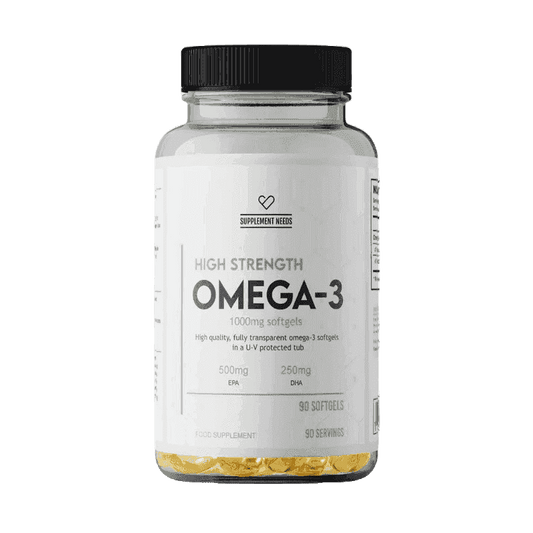Introduction: Creatine and the Rest Day Dilemma
If you’ve ever taken creatine, you’ve probably asked yourself the same question: “Do I really need to take it on days I’m not training?” It’s a fair concern. After all, nobody wants to waste supplements on days they’re sat at their desk or lounging on the sofa. But creatine isn’t like pre-workout, where the buzz only matters an hour before the gym. Creatine works by saturating your muscles over time, creating a reservoir of energy that’s available whether you train three times a week or seven.
The truth is simple: creatine still works if you don’t train every day — but the way it works is often misunderstood. To get the most out of it, you need to understand the science, the myths, and how it interacts with your overall nutrition. That’s exactly what we’re going to break down here, along with the supplements that pair best with it for maximum impact.
1) Do I Have to Take Creatine Every Day Even If I Don’t Workout?
Think of creatine like charging your phone. You don’t just charge it when it hits 0%; you keep it topped up so the battery is ready whenever you need it. Creatine works the same way. Once your muscles are saturated — which takes anywhere from one to four weeks depending on how you dose it — your job is simply to keep those levels steady.
Skipping a rest day might not cause disaster, but it chips away at that consistency. The point of creatine is to be “ready on demand,” fuelling your muscles with rapid energy (ATP) when you push through heavy lifts, sprints, or even cognitive strain. That reservoir only works if it’s consistently full.
💡 Naughty Boy Prime Creatine is ideal for this — clean, straightforward, and clinically dosed. Taken daily, even on non-training days, it ensures your muscles stay primed so you’re not starting from scratch when you get back in the gym.

2) Can I Skip Creatine on Rest Days?
Here’s the good news: missing the odd day won’t erase your progress. Creatine isn’t like caffeine — your body doesn’t rely on a single “hit.” Instead, it’s about long-term maintenance. But here’s the catch: if you keep skipping, your muscle stores will gradually decline, and you’ll lose the edge creatine provides.
Think of it like topping up petrol. If you only refuel when the tank is almost empty, you’ll constantly be running close to fumes. A daily scoop keeps the system topped up so you can focus on training rather than playing catch-up.
💡 This is also where Per4m Advanced Whey Protein complements creatine beautifully. Protein rebuilds the muscle you’ve broken down, while creatine provides the energy to push harder in sessions. Even on rest days, combining the two keeps recovery efficient and growth consistent.
3) How Long Does Creatine Take to Work?
This is where people get impatient. Creatine doesn’t give you the instant rush of a stim-heavy pre-workout. Instead, it builds gradually.
-
With a loading phase (20g a day split into 4 doses for 5–7 days): you’ll hit full saturation in about a week.
-
Without loading (3–5g daily): you’ll reach full saturation in 3–4 weeks.
Both approaches work. The difference is simply speed. Once your muscles are full, you’re in maintenance mode — and that’s where the daily consistency comes in again. Whether it’s leg day, a rest day, or even a stretch session, you keep taking creatine so the tank never empties.
💡 Supporting this with a multivitamin like Applied Nutrition Multi-Vitamin Complex makes sense. While creatine focuses on energy pathways, micronutrients like B-vitamins, zinc, and magnesium cover the background processes of recovery, hormone function, and energy production. Together, they keep you firing on all cylinders.

4) What Happens If I Skip a Day of Creatine?
Miss one scoop? Don’t panic. Your body won’t flush everything out overnight. In fact, it can take several weeks of complete neglect for creatine levels to fall back to baseline.
But here’s the danger: one missed day becomes two, then three, and suddenly your “daily habit” is more like “when I remember.” That’s when you’ll notice slower recovery, less endurance, and a plateau in strength gains.
Consistency beats perfection. Just like brushing your teeth, the point isn’t whether you skipped once — it’s whether you keep the habit alive long-term.
💡 This is why pairing creatine with Supplement Needs Omega 3 is smart. Both thrive on consistency, not sporadic use. Omega-3 reduces inflammation and supports joint health, while creatine drives performance. Taking them daily builds a foundation your body can rely on, whether you’re training or resting.

5) What Is Creatine Bloat?
Ah yes, the infamous “creatine bloat.” This phrase has scared off countless gym newcomers who think creatine will make them look soft or puffy. Here’s the truth: creatine does cause water retention — but inside your muscles, not under your skin. That’s why muscles often look fuller and harder on creatine, not fatter.
The key is hydration. Creatine pulls water into the muscle cells, which is exactly what you want for performance and recovery. But if you’re dehydrated, or your electrolyte balance is poor, you might feel heavy or sluggish. The fix isn’t ditching creatine — it’s managing hydration smartly.
💡 Per4m Hydrate Electrolyte Mix is perfect here. It keeps fluid balance in check, replaces electrolytes lost through sweat, and prevents the sluggishness some people mistake for “bloat.” When creatine and hydration work together, you get the strength and fullness without the downsides.
✅ End of Part 1
So far we’ve unpacked:
-
Why daily creatine matters (even on rest days).
-
What happens if you skip doses.
-
How long it takes to work.
-
The truth behind “bloat.”
And we’ve spoke about 5 core products:
- Naughty Boy Prime Creatine
- Per4m Advanced Whey Protein
- Applied Nutrition Multi-Vitamin Complex
- Supplement Needs Omega 3
- Per4m Hydrate Electrolyte Mix
🔜 Part 2 will dive into:
-
Creatine and weight gain without training
-
Hydration and water intake
-
Does creatine still work without exercise?
-
What happens when you stop creatine?
-
Cycling vs consistency
-
Full FAQ + conclusion
Does Creatine Still Work If You Don’t Train Every Day? (Part 2)
6) Does Creatine Cause Weight Gain Without Exercise?
This is one of the biggest misconceptions about creatine. Many people worry that if they take creatine on days off — or worse, during weeks they barely train — they’ll suddenly put on “fat weight.” That’s not how creatine works.
When you supplement with creatine, your muscles store more phosphocreatine and pull additional water into the muscle cells. This intracellular hydration is a good thing: it makes your muscles look fuller, helps them recover faster, and primes them for your next workout. But that extra water doesn’t equal fat. It’s not stored under the skin like puffiness; it’s stored in the muscle where it belongs.
Yes, the scale might go up a kilo or two, especially in the first few weeks. But that “weight gain” is simply your muscles holding more fuel and more water. If anything, it sets the stage for better workouts and more lean mass over time. Without exercise, you won’t maximise the benefits — but you won’t get “fat” either.
💡 This is where Combat Fuel Clear Whey becomes a perfect partner. It gives you the protein you need for lean muscle growth while keeping calories light and digestion smooth. Paired with creatine, it ensures any weight you gain is productive, not wasted.
7) How Much Water to Drink With Creatine?
Creatine pulls water into your muscles, which is exactly what makes it effective. But that also means you need to stay on top of hydration. If you’re not drinking enough, you might feel sluggish, headachy, or falsely “bloated.”
So how much is enough? For most gym-goers, 3–4 litres of water daily is the sweet spot. That sounds like a lot, but it adds up quickly once you factor in training, warm climates, or high-protein diets. Think of it as a sliding scale: the harder you train, the more water you’ll need.
Electrolytes matter here too. Water alone won’t cut it if you’re sweating buckets in the gym. Creatine works best when your fluid balance is supported by sodium, potassium, and magnesium. That’s where the right hydration strategy makes creatine more effective, not less.
💡 Per4m Hydrate Electrolyte Mix delivers that balance in a simple, gym-friendly drink. It ensures the water you drink is absorbed properly, preventing dehydration and keeping muscles primed to use the creatine effectively.

8) Does Creatine Work If You Don’t Train?
Here’s the blunt answer: yes, creatine still “works” — but its effects depend on how you use it.
Creatine doesn’t just vanish from your system if you skip the gym for a week. Muscle saturation remains, and the body continues to benefit from the extra energy stores. You might notice improved focus, quicker recovery from day-to-day activity, and even sharper cognition — since creatine plays a role in brain energy as well.
But the real magic of creatine happens when you push your muscles beyond their comfort zone. Without training, you won’t trigger the adaptations (like bigger, stronger muscle fibres) that creatine amplifies. In other words, creatine sets the stage, but exercise is the performance.
💡 This is why a consistent foundation — creatine paired with essentials like Applied Nutrition Multi-Vitamin Complex and Supplement Needs Omega 3 — matters. Even on rest days, they work in the background to keep you healthy, primed, and ready to make the most of training when you get back to it.
9) Will I Lose My Gains If I Stop Taking Creatine?
The fear of losing everything you’ve built once you stop creatine is widespread, but it’s largely exaggerated. Here’s what actually happens:
-
Muscle water stores decrease. You’ll likely notice a small drop in scale weight and muscle “fullness.”
-
ATP availability falls back to baseline. Workouts may feel a little harder, and you might not push quite as many reps.
-
Strength plateaus. Without the extra fuel creatine provides, you may progress more slowly.
But here’s the key: you don’t lose muscle mass you’ve worked hard to build. If you’ve trained consistently, that tissue is yours. Creatine helps you gain more and recover faster, but stopping it doesn’t erase months or years of progress.
This is why many athletes use creatine year-round. It’s cheap, effective, and safe for long-term use. Think of it less as a short-term “cycle” and more as a steady part of your training toolkit.
10) Is It Okay to Go On and Off Creatine?
Yes — creatine is one of the safest supplements you can take. You don’t need to cycle it like stimulants or fat burners. Your body naturally produces some creatine anyway; supplementation just boosts your reserves.
That said, consistency always wins. Going on and off creatine won’t harm you, but it will prevent you from seeing its best results. Imagine taking one step forward, half a step back, then forward again. You’ll still move in the right direction, but not as efficiently as if you simply kept going.
If you’re ever forced to stop (say, you run out or take a break), don’t panic. Your performance might dip slightly, but it will recover once you restart. The best long-term strategy? Keep it simple: 3–5g daily, training day or not.
💡 Naughty Boy Prime Creatine makes that routine effortless — one scoop, once a day, no cycling required.

🧠 FAQ: Creatine and Rest Days
1. Should I take creatine when I don’t train?
Yes — daily use keeps your muscles saturated so creatine is always available when you hit the gym again.
2. Does creatine still help muscle if you skip gym days?
Yes. It maintains energy reserves and supports recovery, but you’ll maximise its effects with regular training.
3. Do I need to load creatine if I don’t train daily?
No — a steady 3–5g per day is enough. Loading just speeds up saturation but isn’t essential.
4. What happens if I skip a day of creatine?
One day won’t matter. But repeated skips reduce saturation and weaken long-term results.
5. Can you take creatine on cardio or rest days?
Yes — creatine supports endurance, energy balance, and even brain function. It’s beneficial beyond heavy lifting.
6. Does creatine cause fat gain?
No — only a small increase in water weight inside the muscles, which actually improves performance.
7. How much water should I drink with creatine?
Aim for 3–4L daily, and include electrolytes for proper absorption.
Conclusion: Creatine Is About Consistency, Not Perfection
So, does creatine still work if you don’t train every day? Absolutely. Its real power lies in keeping your muscles saturated — not in whether you took it right before hitting the bench press. Rest days are part of the process, and creatine helps you recover, maintain energy, and return stronger when you do train again.
The bigger picture is this: creatine isn’t magic, but it’s one of the most reliable, affordable, and proven supplements in the gym world. Pair it with the right nutrition, hydration, and recovery support, and you’ll get the best from it whether you train three days a week or seven.
At Uncle Gym, our range is built on this principle — no gimmicks, just products that work when you use them right.





